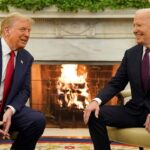
Recent weeks in Bangladesh have seen rising political instability with large-scale confrontations between opposition parties, especially the Bangladesh Nationalist Party (BNP), and the ruling Awami League (AL) amid preparation for the upcoming general elections. These confrontations have led to reports of excessive force, arbitrary arrests, and a climate of fear in Dhaka and other urban centers. The BNP claims that the government’s methods are intended to stifle opposition and prevent fair elections.
Key points and future implications include:
- Election-Related Violence: Violent clashes are erupting between police forces, AL supporters, and BNP activists, often resulting in mass detentions and injuries. Human rights groups like Human Rights Watch have documented numerous instances of alleged excessive force and politically motivated arrests, raising concerns that intimidation tactics are undermining democratic freedoms in the lead-up to the elections. This heavy-handed approach could deter voter turnout and create long-term issues around election legitimacy and trust in the democratic process.
- International Concerns: With the EU and international observers scrutinizing Bangladesh’s commitment to democracy, there is a real risk that trade benefits, like the EU’s “Everything But Arms” program, may be reconsidered if human rights concerns persist. Such economic sanctions would have significant impacts, particularly in the textile and garment sectors on which Bangladesh’s economy heavily relies.
- Public Dissent and Economic Strain: Economic discontent is also stirring frustration among the general population. Increasing prices of daily essentials have placed an economic strain on families, exacerbating frustrations amid political turmoil. Continued unrest may further weaken consumer confidence and economic growth as citizens grapple with both economic and political pressures.
- Future Political Landscape: The continued clampdown on opposition forces could have enduring impacts, potentially stifling political diversity if opposition leaders are marginalized or jailed. Political analysts suggest that a fair electoral process is crucial for long-term stability, as failure to ensure fair participation could lead to deeper political fragmentation and unrest post-election.
Overall, the current situation reflects a critical moment for Bangladesh’s political future. Analysts argue that transparent governance, restrained security measures, and international diplomatic engagement could play a vital role in stabilizing the political climate and securing long-term democratic health.





